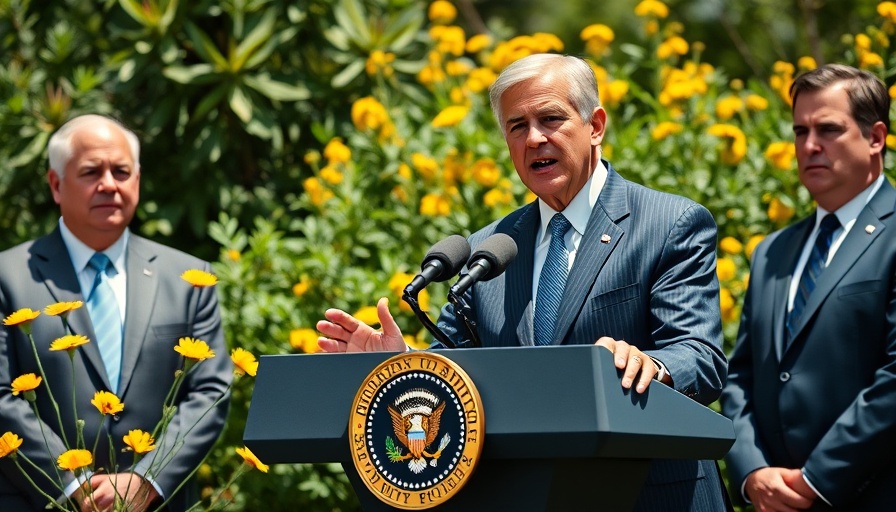
Decoding the Uproar Surrounding Adam Boehler
The recent controversy involving Adam Boehler, former U.S. presidential envoy for hostage affairs, raised eyebrows across both America and Israel. When Boehler referred to Hamas operatives as 'good guys,' it ignited a wave of anger among many, particularly in Israel. Critics wondered how such comments could come from someone tasked with the delicate matter of hostage negotiations. Yet, amid the public outcries, it is essential to clarify how Boehler's involvement was perceived and what it means for U.S.-Israel relations.
What Really Happened? A Timeline of Events
While Boehler initially took on the role of special envoy aimed at facilitating hostage negotiations, his brief tenure was mired in confusion and miscommunication. Far from being a key player in sensitive hostage discussions, he was largely sidelined. Reports stated that his attempts to engage with Hamas were lower level and did not reflect an official U.S. diplomatic stance. The situation further escalated when news broke of his disconnected talks about freeing hostages, raising alarms among Israeli officials who felt blindsided.
The Broader Implications of His Remarks
Boehler's comments about Hamas operatives, coupled with his withdrawal from the nomination to serve as the top hostage negotiator, have important implications for U.S-Israel relations. His description of adversaries as 'good guys' challenges the norms of diplomatic communication, especially when dealing with a group recognized as a terrorist organization by many. This misstep not only hindered his credibility but also stirred discontent within the Israeli government, prompting officials to demand a more unified American stance.
Impact on Future Diplomatic Efforts
The fallout from Boehler’s resignation is likely to affect future dialogues concerning the Middle East. With strategic partnerships on the line, it is crucial that U.S. officials maintain careful diplomacy. The manner in which this situation is resolved could either strengthen or weaken U.S. influence in Israel, particularly as hostility towards Hamas continues.
A Historical Perspective on U.S.-Israel Relationships
This incident reflects a broader historical context where public statements by officials can ripple through international relations. High-profile errors may evoke strong reactions and lead to escalations. In past instances, miscommunication or poor phrasing has jeopardized peace initiatives or sparked unnecessary tensions. As such, leaders must navigate carefully to uphold the ongoing partnership that is critical for stability and security.
What Can the Audience Learn?
For believers and advocates concerned about human rights and international relations, this situation serves as both a warning and an opportunity. It emphasizes the necessity of understanding the sensitive nature of geopolitical issues while advocating for peace. Engaging critically with these events can foster deeper conversations around faith, diplomacy, and humanitarian efforts in regions plagued by conflict.
Call to Action: Stay Engaged in Global Affairs
As involved citizens, it’s essential for us to be aware of the complexities surrounding international negotiations and conflicts. Understanding the nuances can empower us to advocate for justice and peace effectively. Stay informed, participate in discussions, and advocate for a voice in global affairs that aligns with compassion and understanding.
 Add Row
Add Row  Add
Add 








 Add Row
Add Row  Add
Add 

Write A Comment